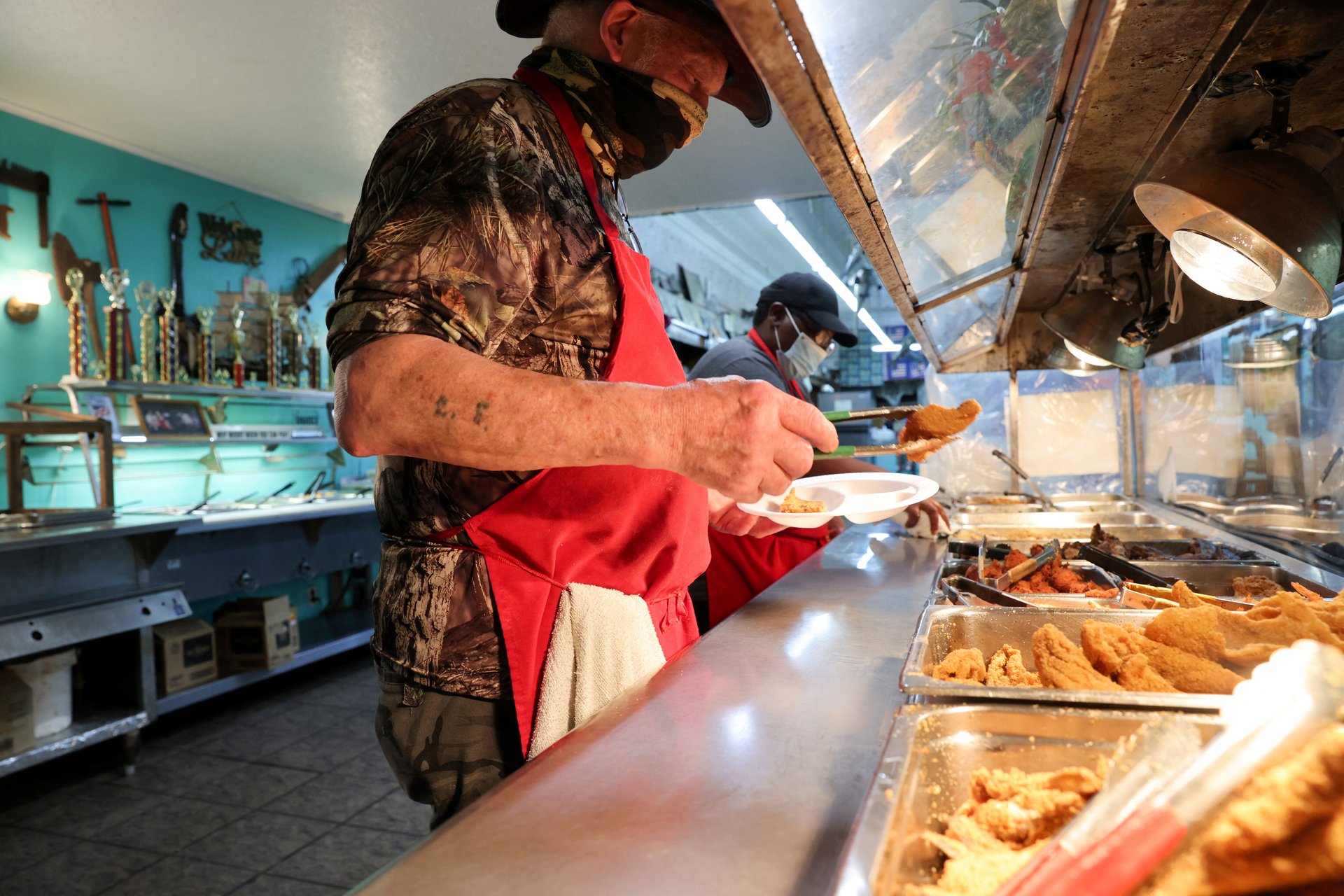Paid sick leave for workers could prevent 40% of restaurant food poisonings
The CDC found that many food illness outbreaks are directly connected to workers showing up sick

Every year in the US, nearly 50 million people are affected by food-borne disease, according to the Centers for Disease Control and Prevention (CDC). Those incidents lead to almost 130,000 hospitalizations and 3,000 deaths.
Suggested Reading
Restaurants and other food businesses figure in a significant number of cases: From 2017 to 2019, the CDC tracked 800 outbreaks of illness linked to 875 food establishments, a report published by the agency June 2 reveals. Most were due to norovirus (47%) and salmonella (17%), at least among outbreaks with known causes.
Related Content
Yet many of these cases could have been avoided, if only paid sick leave were common in the US restaurant industry. According to the CDC study, 40% of outbreaks with at least one reported factor were associated with food contaminated by an ill or infectious worker—or a worker who should have been on sick leave.
Paid sick leave is a public health issue
Although most food establishments interviewed by the CDC said they required workers to notify them of their illness, the volume of contamination due to sick employees shows the current leave policy isn’t effective. Workers either can’t afford to, or feel dissuaded from, taking time off when feeling unwell.
The Food and Drug Administration’s (FDA) Food Code recommends that staff with illnesses that can be transmitted through food don’t work, but many report doing so. A 2016 report from the CDC found that 20% of employees in the industry had worked at least one day while vomiting or suffering from diarrhea.
The CDC’s recommendations on preventing contamination from sick workers stress the importance of staffing restaurants so they can afford the occasional sick employee, and of requiring workers to tell managers when they’re sick. But arguably the most crucial recommendation is also the hardest to enforce: “Ensuring food workers will be paid and will not lose their jobs if they are absent from work because they are sick.”
Most of the world mandates paid sick leave
The US is one of few countries with no federal paid sick leave policy, and the requirement for unpaid sick leave only applies to certain companies. Even in states with some regulations, the rules are often insufficient.
In California, workers are entitled to a minimum of just three days (or 24 working hours) paid leave per year; in New York, businesses with up to four employees and annual income of less than $1 million are only required to provide unpaid leave (40 hours a year), while businesses with up to 99 employees must provide 40 hours of paid leave.
This pales in comparison to what the rest of the world does: 94% of countries guarantee paid sick leave to full-time workers, and 93% to part-time ones. Almost all nations comparable to the US, with the exception of Israel and South Korea, offer at least three months of paid sick leave per year, with many guaranteeing leave of up to a year or more.
